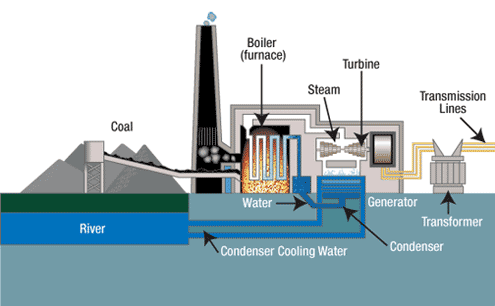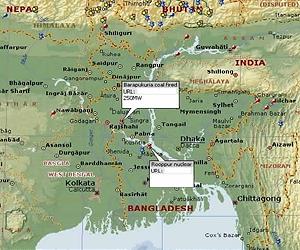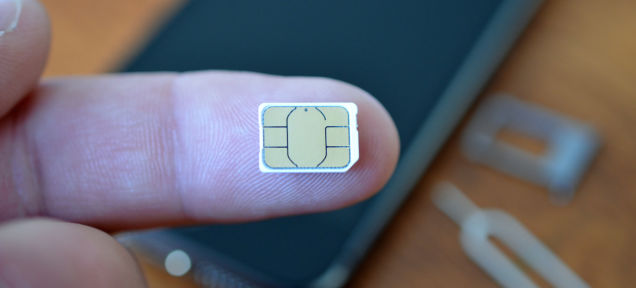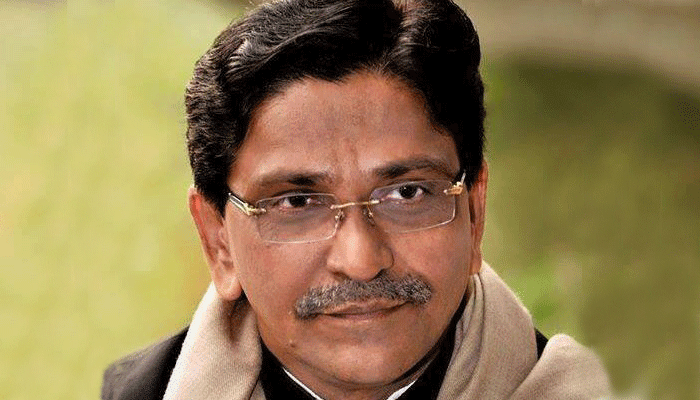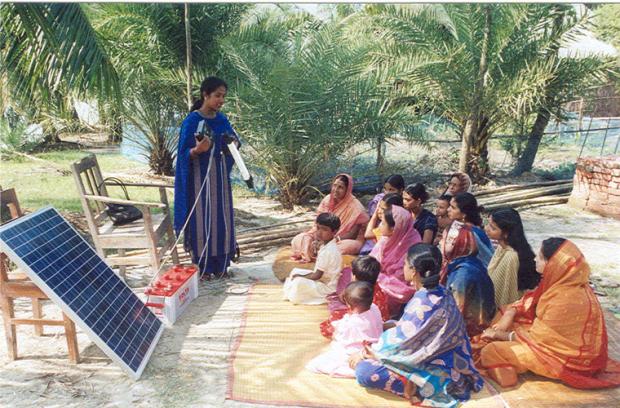 Solar home systems are bringing the benefits of electrical power to millions in rural Bangladesh, a testament to the numerous and varied benefits access to cheap, clean and renewable distributed solar PV can have in developing countries. Microfinance provider Grameen Shakti’s efforts to market and sell solar home systems (SHS) in rural areas across the country that lack grid access have proved extremely successful.
Solar home systems are bringing the benefits of electrical power to millions in rural Bangladesh, a testament to the numerous and varied benefits access to cheap, clean and renewable distributed solar PV can have in developing countries. Microfinance provider Grameen Shakti’s efforts to market and sell solar home systems (SHS) in rural areas across the country that lack grid access have proved extremely successful.
More than 500,000 SHS systems have been installed cumulatively as of year-end 2010, according to Grameen Shakti. The SHS home energy package includes one or more solar photovoltaic (PV) panels, batteries, a power regulator, and a set of compact fluorescent lamps (CFL) and LED lights.
Best Investment I’ve Ever Made
It’s the best investment he’s ever made, Nizamuddin Sheikh, the owner of a small restaurant in rural Bangladesh, told Inter Press News Service’s (IPS) Naimul Haq. Sheikh’s doubled his income since signing up for a Grameen Shakti SHS plan that enables him to pay for the solar power system with a small down payment and affordable monthly installments.
Sheikh pad the Bangladeshi Taka equivalent of $24 up-front for an SHS system comprising a 20-Watt solar PV panel, battery, regulator, CFLs and LEDs. He’ll pay another $5 month over the next 36 months to pay off the total cost.
Grameen Shakti’s most popular SHS system provides about 10W of clean, renewable electric power for a total cost of $124. That ranges up to the most expensive system, which provides 135W of uninterrupted power for four four hours at a total cost of $925.
Grameen Shakti’s SHS systems are cheaper than the fossil fuels, such as kerosene, rural Bangladeshis have come to rely on, but the benefits extend far beyond that.
Solar Home Systems Delivering Myriad Benefits
“SHS units are in demand due to many advantages, but especially because it is far cheaper than conventional fuels like kerosene and diesel and has no maintenance expenses,” acting managing director Abser Kamal told IPS. “In the villages solar power provides extended working hours for students, shopkeepers and housewives. Now they can do things like conveniently charge mobile phones – which have already been changing lives.”
Adding to the benefits are zero CO2 and greenhouse gas emissions, and significantly improved health and safety conditions as compared to traditional fossil fuel alternatives. Using the solar home systems is also yielding substantial social benefits. Besides enabling small business owners such as Sheikh to stay open longer, thereby significantly increasing their incomes, the artificial light they bring enables students to study in the evening with better quality light. It also lifts some of the burden of running a household carried by Bangladeshi women.
On top of all this, installation of the solar home energy systems is quick, safe and relatively simple. Just 41% of Bangladesh’s 142-million people have access to the national electricity grid. The solar home energy systems can be installed in a day.
Source: energy bangla.com







